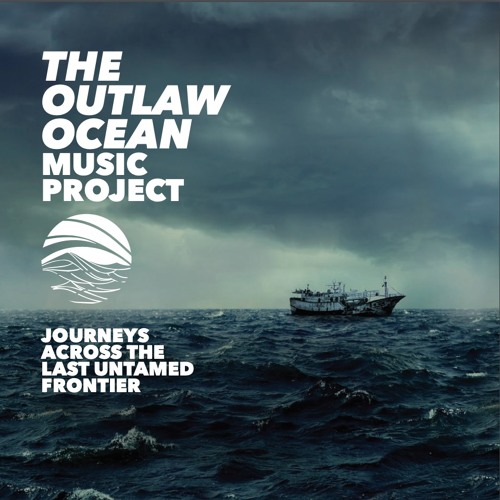Ian Urbina, Director and Founder of The Outlaw Ocean Project is a thought leader, influencer, visionary, and successful entrepreneur. Ian provides the leadership and energy that has inspired the creation of successful business and real estate empire.
Ian Urbina joins other leading Bestselling Authors, International Speakers & entrepreneurs, Director and Founders, and Founders taking part in our Leader Roundtable Interview Series. The DotCom Magazine editorial team is delighted to have Ian join us for our Leader Roundtable Interview.
Let us start by telling us about your business.
I run a small news organization that produces long-form investigative stories about human rights and environmental concerns at sea. More than 50 million people work offshore. Roughly 80 percent of the goods we consume reach us by way of the sea. Half the air we breathe comes from the oceans. And yet, this realm is home to a variety of urgent concerns that go largely overlooked by most news outlets because it is too costly, too dangerous and too time consuming to report on them. These concerns include the murder of stowaways, arms trafficking, illegal fishing, pollution, dumping, offshore drilling and human slavery on fishing ships.
The Outlaw Ocean Project’s journalism is distinct not just in its focus, but also in how the reporting is conducted and distributed. Most of the stories are reported at least partially at sea. In the United States, the non-profit publishes its stories in various news outlets, including the New Yorker, NBC News, The Atlantic and The Washington Post. Internationally, the reporting is translated into a half dozen languages and disseminated in more than 40 other countries through partnerships with foreign newspapers, magazines, radio and television venues. To reach a younger and more international audience, the organization leverages non-news platforms, collaborating with artists to convert the reporting into other forms such as music, animation, mural art, stage performance, and podcast.
Please tell us how you make sure your customers will become raving fans of your company?
We produce something that the public can’t find elsewhere. We report stories that surprise readers. We tell them with more rigor and polish than others might. We go the extra mile to report the stories at sea not on land.
Please tell us the one thing that separates your business from the competition.
We package the journalism in various ways – written, audio, video, music, podcast, animation, theatrical, muralist – so it can disseminate further and affect people differently.
And to finish this section, please tell us what the one major key to your company’s success is?
We do not rush. Much of media today is eager to be first. We aim to be better and different, even if it takes longer.
For our readers just starting to build a company, what advice can you give entrepreneurs just starting out with a new venture?
Focus on something you are passionate about so that work is passion not duty.
For entrepreneurs seeking to build a business as successful as yours, what big piece of advice can you give them when times get a little challenging?
If you are trying to innovate in journalism specifically I would suggest focussing not just on the subject matter you aim to cover but on matters of distribution: in other words, how will you get your stories to different people and get it to be consumed by them differently.
In today’s fast changing business environment, how do you stay abreast of things?
Not sure I do. But I try to talk to smart people who seem to be on top of current trends and listen to what they see as interesting blips on the horizon.
What is your “Why”? In one sentence, why do you get up in the morning?
Why hasn’t someone done this sooner?
In one sentence, what is the most important thing one has to do to be a great leader?
Study Ted Lasso.
In one sentence, describe how important your customers are to your business?
Like air to a human.
In one sentence, describe a positive way that technology can make the world a better place?
In the realm of journalism it is the most efficient means of distribution history has ever known.
In one sentence, tell us how something positive to motivate our readers?
Kindness goes a really long way and if you try to make that a part of your interactions with folks it can open doors that you didn’t realize were even doors.
In one sentence, tell us how you start your day to get ready?
Coffee. Lots of it.
In one sentence, describe how you handle rejection and setback?
I don’t know that I succeed at this goal but my aim is to figure out what part might not actually have been my fault, cordon that off, then focus on what part was mine to own, then sit with that, then really double down on concrete ways to improve or fix whatever might be broken.
In one sentence, describe what your hiring philosophy is?
Trust your instincts in reading people and ramp people into an organization slowly because time reveals a lot more than resumes do.
In one sentence, describe how you keep your sanity in a competitive business environment?
Try to set up structured rituals that put parameters on your time and force you to do key things that help you stay sane like sleep, working out, social service, unplugged time for music or tv shows or outdoor time.
Ian Urbina, thank you so much for participating in the DotCom Magazine Leader Roundtable Interview Series. We appreciate you participating in this important roundtable interview series, and helping our readers learn more about what it takes to build a great company and become a great leader. We wish you, your family, and of course your entire business, nothing but the best.
Website:
www.theoutlawocean.com
Twitter:
http://twitter.com/ian_urbina
Facebook:
https://www.facebook.com/IanUrbinaReporter/
LinkedIn:
https://www.linkedin.com/in/ianurbina/
Instagram:
https://www.instagram.com/ian_urbina/






















